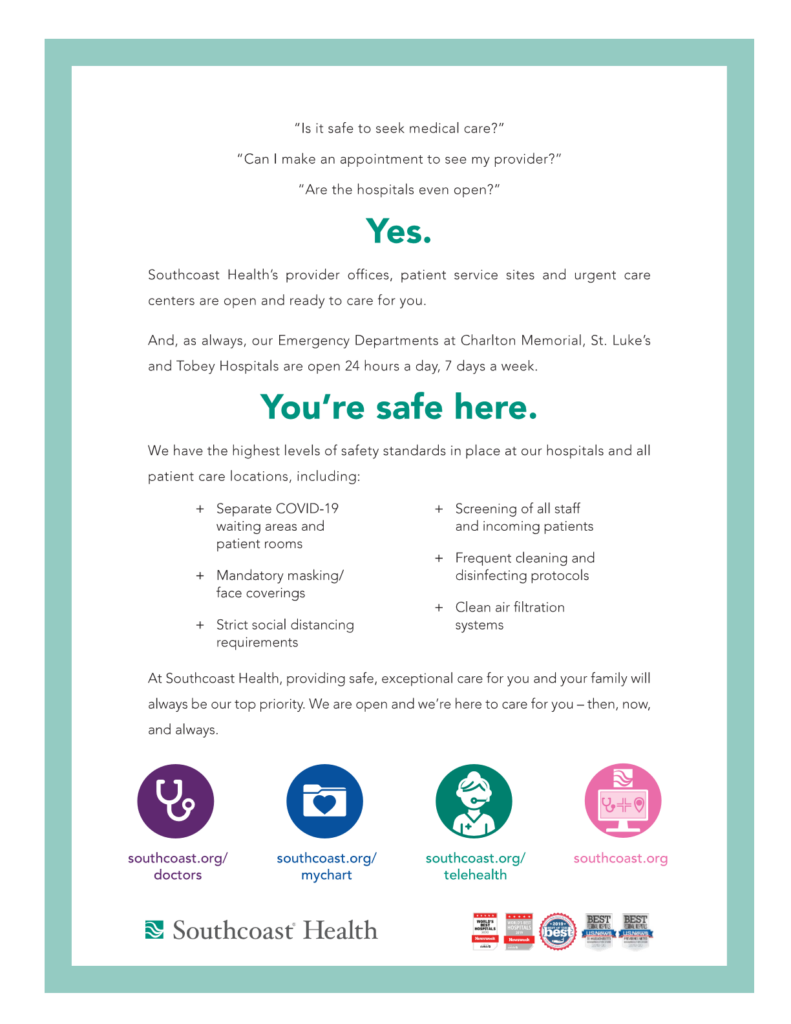Health+
Southcoast Health’s Job #1
Protecting Patients, Providers and Staff
When you enter a Southcoast Health building these days, expect a temperature check before you’re allowed in. In fact, infrared sensors automatically read your temperature at Charlton Memorial and St. Luke’s Hospitals.
Welcome to health care in a world with COVID-19, as Southcoast makes what likely will be lasting changes to keep patients and providers safe.
“We don’t know the trajectory of this disease,” said Jacqueline Somerville, RN, Ph.D., Southcoast’s chief nursing officer. “We don’t know what the world will look like going forward. We need to be vigilant, prepared, and nimble.”
Telemedicine now enables patients to seek care from home, but doctors cannot listen to lungs or set a broken bone remotely. Patients who must come in are screened for symptoms and spend little or no time in waiting rooms. Visit our Safe Here page for the latest information on how we’re keeping all patients and staff safe.
Exam rooms and equipment are kept meticulously clean. “Infection control is not new territory for us. We do it all the time, whether it is Ebola, influenza, or another organism we are fighting,” said Dr. Brian Tsang, chair of emergency medicine at Charlton Memorial and Tobey hospitals.
Visitors have been limited at Southcoast hospitals. Keeping patients separate from each other and segregating those with COVID-19 symptoms throughout the system has been essential.
“Hot zones” are dedicated to COVID-19 treatment only, and “cold zones” are reserved for patients with other conditions and emergencies. Dr. Tsang said that providers spend a full shift in a single zone so they won’t carry the virus to uninfected patients.
The urgent care clinics also dedicate rooms to possible coronavirus patients, and nebulizers are no longer used to treat asthma because they create aerosols that could contain viruses, said Dr. Nicole Coleman, medical director of urgent care.
We’re Open for Care!
Physicians nationally report that patients are waiting longer to seek care for severe illness, including strokes, heart attacks, internal bleeding and infections. Call 911 right away, if you have severe pain in the chest, back, head or abdomen, arm or leg numbness or weakness, difficulty speaking, seeing, walking or breathing, confusion or change in mental status. Do not ignore your symptoms. Rapid treatment is critical to avoid prolonged hospital treatment, permanent disability or death, doctors say.
Likewise, don’t wait until a broken bone, dislocated joint or persistent rash requires hospital care, even surgery. As a reminder, before contacting your closest urgent care clinic, visit our locations page for hours and services before seeking the care you need.

